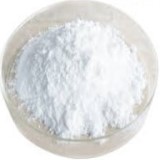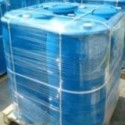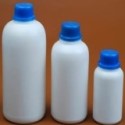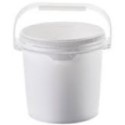 |
Magnesium Aluminometa Silicate or Magnesium Aluminometasilicate or Aluminum Magnesium Silicate or Magnesium Aluminum Silicate EP BP Ph Eur USP Grade and Supplier Exporter Manufacturers' Representative |
Email: info@ammol.org |
Call Toll Free +1-855-552-6665 |
Magnesium Aluminometa Silicate or Magnesium Aluminometasilicate or Aluminum Magnesium Silicate or Magnesium Aluminum Silicate
CAS Number: 12511-31-8, 1327-43-1, 12199-37-0

Magnesium Aluminometa Silicate or Magnesium Aluminometasilicate or Aluminum Magnesium Silicate or Magnesium Aluminum Silicate
Magnesium Aluminum Silicate USP NF Grade Specifications
Magnesium Aluminum Silicate is a blend of colloidal montmorillonite and saponite that has been processed to remove grit and non-swellable ore components.
The requirements for viscosity and ratio of aluminum content to magnesium content differ for the several types of Magnesium Aluminum Silicate, as set forth in the accompanying table.
| Type | Viscosity(cps) | (Al content)/(Mg content) |
| Min. ---- Max. | Min. ---- Max. | |
| IA | 0225 ---- 0600 | 0.5 ------ 1.2 |
| IB | 0150 ---- 0450 | 0.5 ------ 1.2 |
| IC | 0800 ---- 2200 | 0.5 ------ 1.2 |
| IIA | 0100 ---- 0300 | 1.4 ------ 2.8 |
Identification: Add 2 g in small portions to 100 mL of water, with intense agitation. Allow to stand for 12 hours to ensure complete hydration. Place 2 mL of the resulting mixture on a suitable glass slide, and allow to air-dry at room temperature to produce an oriented film. Place the slide in a vacuum desiccator over a free surface of ethylene glycol. Evacuate the desiccator, and close the stopcock so that the ethylene glycol saturates the desiccator chamber. Allow to stand for 12 hours. Record the Xray diffraction pattern, and calculate the d values: the largest peak corresponds to a d value between 15.0 and 17.2 angstrom units. Prepare a random powder specimen of Magnesium Aluminum Silicate, record the X-ray diffraction pattern, and determine the d values in the region between 1.48 and 1.54 angstrom units: peaks are found between 1.492 and 1.504 angstrom units and between 1.510 and 1.540 angstrom units.
Viscosity: After determining the Loss on drying, weigh a quantity of Magnesium Aluminum Silicate test specimen equivalent to 25.0 g on the dried basis. Over a period of a few seconds, transfer the un-dried test specimen to a suitable 1-L blender jar containing an amount of water, maintained at a temperature of 25 ± 2 , that is sufficient to produce a mixture weighing 500 g. Blend for 3 minutes, accurately timed, at 14,000 to 15,000 rpm (high speed). [NOTE—Heat generated during blending causes a temperature rise to above 30 .] Transfer the contents of the blender to a 600-mL beaker, allow to stand for 5 minutes, and adjust, if necessary, to a temperature of 33 ± 3. Using a suitable rotational viscosimeter equipped with a spindle as specified below, operate the viscosimeter at 60 rpm for 6 minutes, accurately timed, and record the scale reading. For Type IA, use a spindle having a cylinder 1.87 cm in diameter and 0.69 cm high attached to a shaft 0.32 cm in diameter, the distance from the top of the cylinder to the lower tip of the shaft being 2.54 cm, and the immersion depth being 5.00 cm (No. 2 spindle); if the scale reading is greater than 90% of full-scale, repeat the measurement, using a spindle similar to the No. 2 spindle but having the cylinder 1.27 cm in diameter and 0.16 cm high instead (No. 3 spindle). For Type IC, use a No. 3 spindle; if the scale reading is greater than 90% of full-scale, repeat the measurement using a spindle consisting of a cylindrical shaft 0.32 cm in diameter and having an immersion depth of 4.05 cm (No. 4 spindle). For Types IB and IIA, use a No. 2 spindle.
Microbial limits: Its total aerobic microbial count does not exceed 1000 cfu per g, and it meets the requirements of the test for absence of Escherichia coli.
pH: between 9.0 and 10.0, in a suspension (5 in 100) in water.
Loss on drying: Dry it at 110C to constant weight: it loses not more than 8.0% of its weight.
Acid demand: After determining the Loss on drying, weigh a quantity of Magnesium Aluminum Silicate equivalent to 5.00 g, and disperse in 500 mL of water with the aid of a suitable blender fitted with a 1-liter jar. Using a stopwatch, designate zero time. With constant mixing, add 3.0-mL portions of 0.100 N hydrochloric acid at 5, 65, 125, 185, 245, 305, 365, 425, 485, 545, 605, 665, and 725 seconds, and add a 1.0-mL portion at 785 seconds. Determine the pH potentiometrically at 840 seconds: the pH is not more than 4.0.
Arsenic: The limit is 3 ppm.
Lead: To pass the test The absorbance of the Test preparation is not greater than that of the Standard preparation (0.0015%).
Assay for aluminum and magnesium content: To pass the test.
We also supply Magnesium Aluminometa Silicate or Magnesium Aluminometasilicate or Aluminium Magnesium Silicate EP BP Ph Eur Grade.
Please visit SDS Safety Data Sheet of Aluminum Magnesium Silicate or Magnesium Aluminum Silicate Suppliers.
American Molecules, also known as ammol.org is a distributor, supplier and manufacturers' representative of all types of Pharmaceuticals, Functional Ingredients, Excipients and Specialty Chemicals in Texas USA. Our principals manufacture supply and export USP NF BP, Ph Eur, etc grades of chemicals pure and reagent grade, mineral fortifiers, FCC food grade. Tailor made particle size and customized specifications are offered. The principal's facility is having one or more of the certifications like FDA approval and GLP, cGMP, ISO9001, ISO14001, ISO/IEC 17025, ISO22000, FSSC 22000, ISO45001, FSSAI, Kosher, HALAL, COPP, WHO-GMP certified and Written Confirmation (WC) for export to Europe is available. The manufacturers suppliers and exporters observe WHO Good Manufacturing Practices and Good Laboratory Practices.





Suppliers and Manufacturers' Representative:

9910 Bent Oak Dr
Houston, TX 77040, USA
Call Toll Free: 1-855-55-AMMOL 1-855-552-6665
Email: info@ammol.org